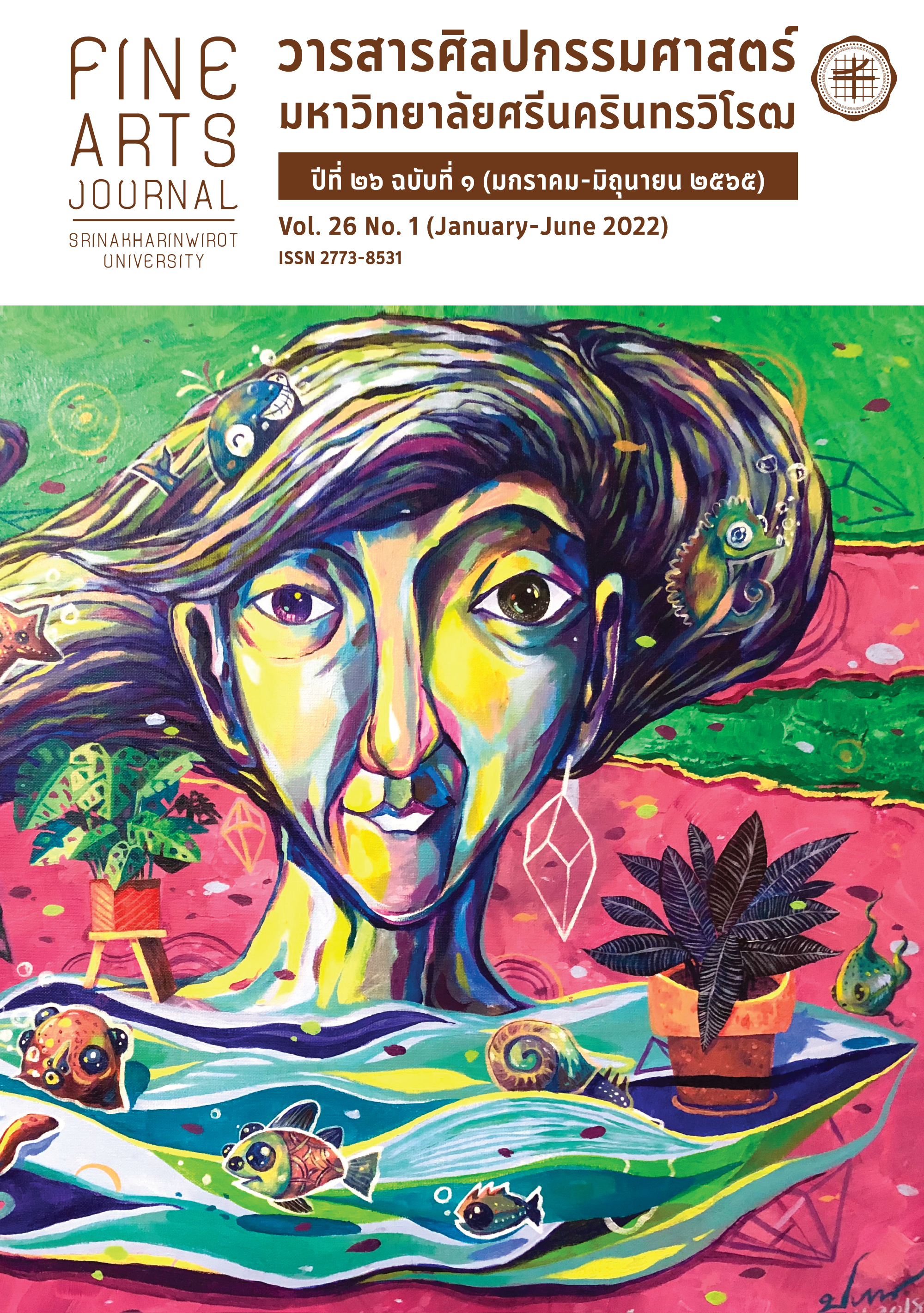GUIDELINES FOR THE DEVELOPMENT OF THE MUSIC TEACHING AND LEARNING PROCESS IN THE SCHOOL OF MUSIC AND DANCE AT YUNNAN NORMAL UNIVERSITY IN PEOPLE'S REPUBLIC OF CHINA
Keywords:
Guidelines for the development, Teaching and learning process, Music teaching and learningAbstract
This research study on guidelines for the development of the music teaching and learning process in the School of Music and Dance at Yunnan Normal University in People's Republic of China. The research was conducted by using qualitative research methodology to collect data through the processes of analyzing documents and gathering field data from surveys, observations, interviews, and group discussions. The sample groups consisted of a knowledgeable group, a practice group, and a general group. The data was collected through triangular analysis in accordance with the objectives of the research, and the research results were presented by using the descriptive analysis method.
It was found that guidelines for the development of the music teaching and learning process in the School of Music and Dance at Yunnan Normal University in People's Republic of China were based on the state policies of the "National Standards for Quality of Teaching and Learning in Music and Performing Arts, 2018" as follows: 1) There is a meeting to management and set the clear objectives of teaching and learning. 2) The curricula and teaching styles must meet standards both in subject content and in teaching methods and should utilize new technologies and methods that are interesting to the students. Furthermore, the content should be consistent with the Yunnan local identity. 3) Teachers are required to be consistent with the criteria. They must be knowledgeable and have specialization in high-level professions. Moreover, they need to have graduated from well-known music institutions and have an outstanding work, which is recognized both nationally and internationally. In this regard, teachers are constantly encouraged to improve their academic skills and research skills. 4) The focus is to produce potential graduates who can meet the goals of the program, can efficiently create musical works, and can meet job requirements and employers’ expectations. 5) There are teaching supports, including annual budgets for buildings, which are essential for teaching and learning, for musical instruments, and for teaching and learning materials. They should be in perfect condition and well-maintained. 6) Finally, the awards and academic achievements are constantly being received.
Downloads
References
นัทธี เชียงชะนา. (2550). การสังเคราะห์งานวิจัยทางดนตรีศึกษา: การวิเคราะห์อภิมานและการวิเคราะห์เนื้อหา (วิทยานิพนธ์ปริญญามหาบัณฑิต). จุฬาลงกรณ์มหาวิทยาลัย, กรุงเทพมหานคร.
นิพนธ์ กล่ำกล่อมจิตร. (2557). การศึกษาวิธีการถ่ายทอดดนตรีไทยในระบบ โรงเรียนและบ้านดนตรีไทย (วิทยานิพนธ์ปริญญามหาบัณฑิต). จุฬาลงกรณ์มหาวิทยาลัย, กรุงเทพมหานคร.
พงษ์พิทยา สัพโส. (2555). แนวทางการจัดการเรียนการสอนเทคโนโลยีดนตรีในประเทศไทยและประเทศสิงคโปร์ (วิทยานิพนธ์ปริญญาดุษฎีบัณฑิต). มหาวิทยาลัยมหาสารคาม, มหาสารคาม.
School of music and dance. (2015, February 25). Professional Introduction. Retrieved December 12, 2020, from https://ywxy.ynnu.edu.cn/info/1015/1051.htm
Yang, X. (2005). Institutional challenges and leadership competencies in Chinese
ministry of education directed universities in implementing the 1999 Chinese action scheme for invigorating education towards the 21st century (Doctoral dissertation). Texas A&M University, Texas, United States.
Downloads
Published
How to Cite
Issue
Section
License

This work is licensed under a Creative Commons Attribution-NonCommercial-NoDerivatives 4.0 International License.






